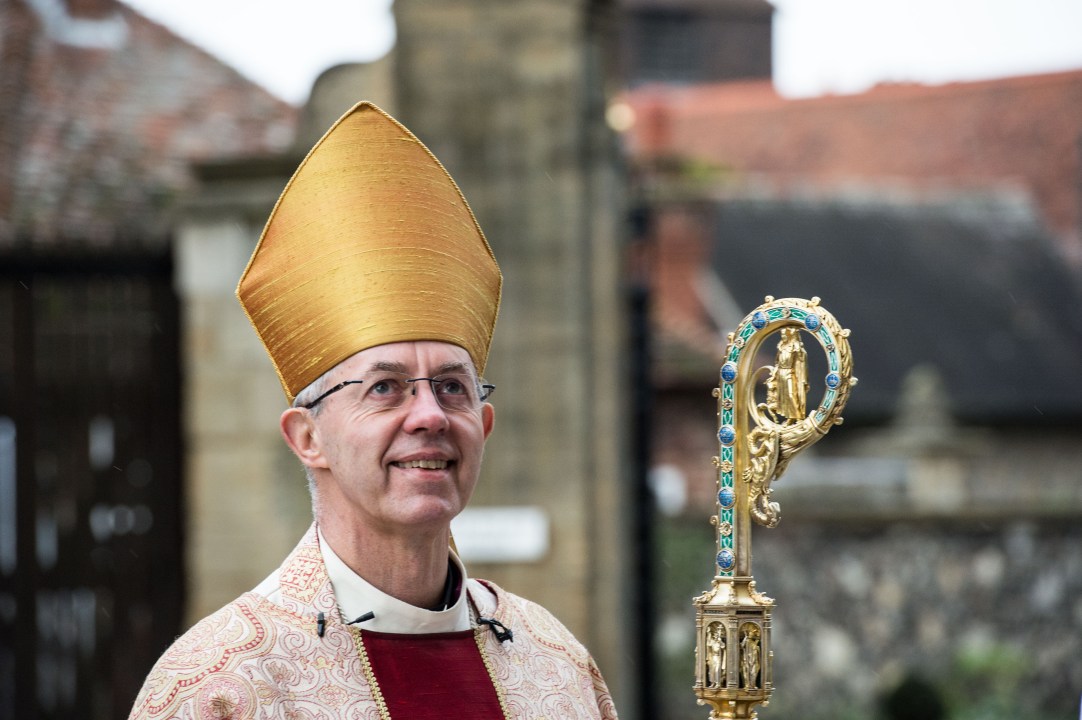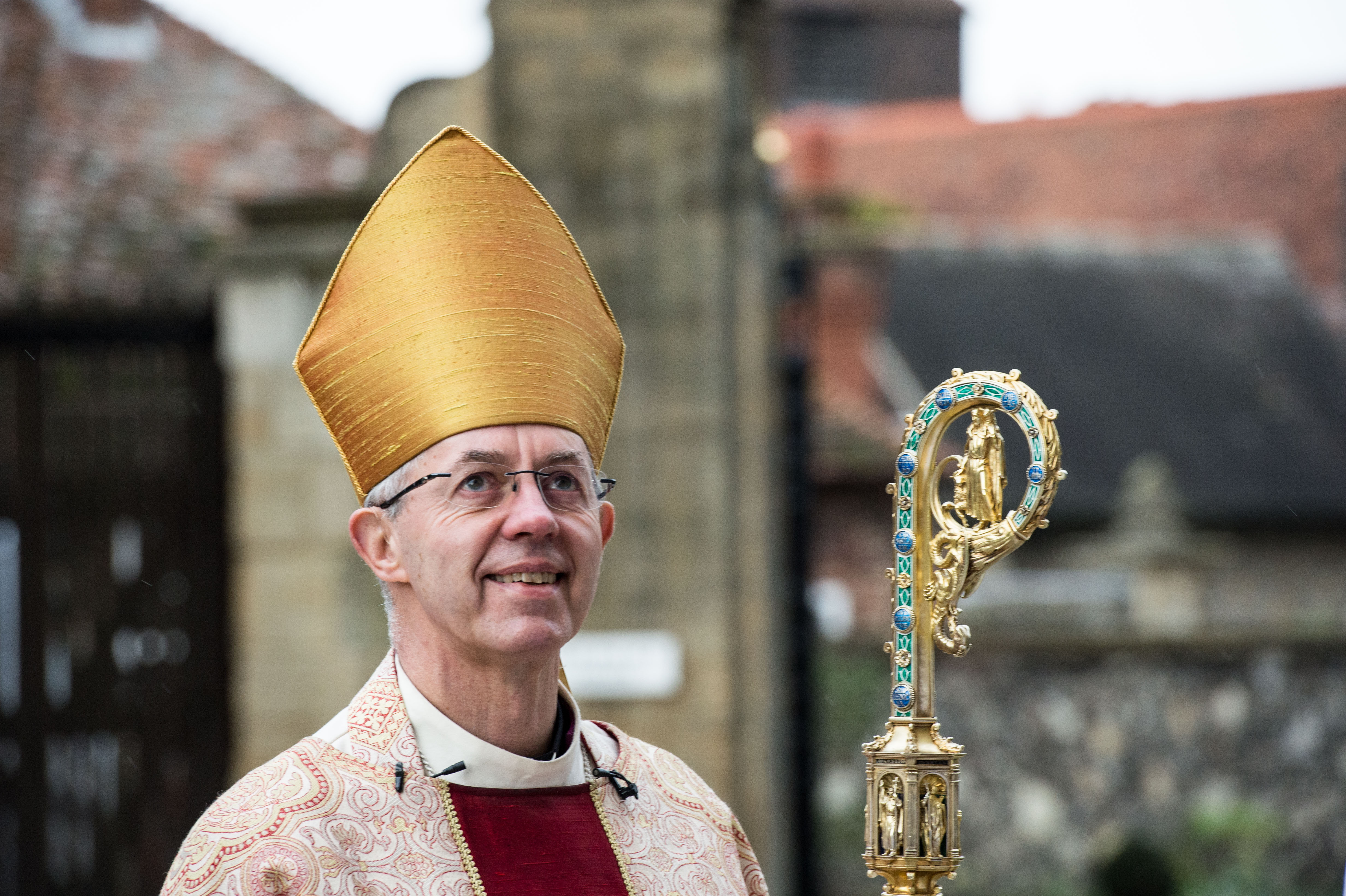A few things come to mind as a result of the Archbishop of Canterbury’s bombshell revelation that his father was not, after all, Gavin Welby, but the late Sir Anthony Montague Browne – a discovery he made by dint of Charles Moore, of this paper, and his conversations with members of Sir Anthony’s family.
One reaction is something like admiration for his mother, Jane, who, at the age of 86, has had unexpectedly to enter an entirely new world, that of the self-exposure which is endemic in her grandchildren’s generation but most certainly wasn’t in hers. She has, she says in her riveting piece in the Telegraph, had to clarify the circumstances of her son’s conception because of his present position. So, we can only imagine the effort it took for a member of the reticent generation to write the following:
‘Although my recollection of events is patchy, I now recognise that during the days leading up to my very sudden marriage and fuelled by a large amount of alcohol on both sides, I went to bed with Anthony Montaue Browne. It appears that the precautions taken at the time didn’t work and my wonderful son was conceived as a result of this liaison.’
‘Went to bed with’… ‘precautions’: these aren’t phrases we really use much now, ‘had sex with’ being our preferred description of the act. But in her way, she conjures up a simply hair-raising scenario: a young woman being bullied by a domineering man into marriage, who drinks more than usual even in that alcoholic circle in the days before the event, and consequently has a drunken fling with a close, patently glamorous colleague. It’s a scenario – drunken sex – not unfamiliar to this generation, with the difference that we exclude the marriage bit. God knows what the precautions were but happily they didn’t work. Failsafe contraception may preserve women from unwanted pregnancy but they also prevent the felix culpa, the accident that turns out to have, much later, happy consequences.
The Archbishop’s reaction has been exemplary; far from blaming his mother for her undeniably rackety conduct, he declares it a tale of redemption – and she did renounce alcohol much later. But his odd home life, raised by his distant father, does go a long way to explain one of his outstanding characteristics, his uxoriousness. His wife Caroline is in evidence at lots of public occasions he’s involved in; he brings her to the forefront whenever he can and talks of himself as part of a couple as he does in this statement. Anyone less rackety than the present Mrs Welby is hard to imagine. He’s reacted against his circumstance all right.
Of course the truth about his conception would not have happened in his mother’s generation – though plainly people talked, and Charles Moore came to the story precisely through local gossip – because they simply didn’t have the scientific means to identify ‘with over 99 per cent accuracy’ who his genetic father was. And I’m not altogether sure that we’re the better for our knowledge, though, like everyone else, I’m riveted by this revelation. Once, women were the ones who identified the paternity of their child because they – usually – knew who was, or was most likely to be, the father (though in this case it was Sir Anthony rather than – by her own account – Jane, who had suspicions about the matter). Disputed paternity was a tragi-comic element of a lot of pre-contemporary literature, and life. But I’m inclined to think uncertainty is better than certainty in this area: it allows for assertion, ambiguity, denial, uncertainty and reticence. And gossip. My own father never knew who his father was. We’d never have had this bombshell without DNA tests.
But, this being Justin Welby, the entire affair, which could have seemed downright sordid, does indeed have a redemptive aspect because, unlike an awful lot of contemporary scientists, he declines to be defined by his DNA. ‘I know that I find who I am in Jesus Christ, not in genetics, and my identity in him never changes’. That’s rather wonderful. And it does indeed tell us everything we need to know.








Comments